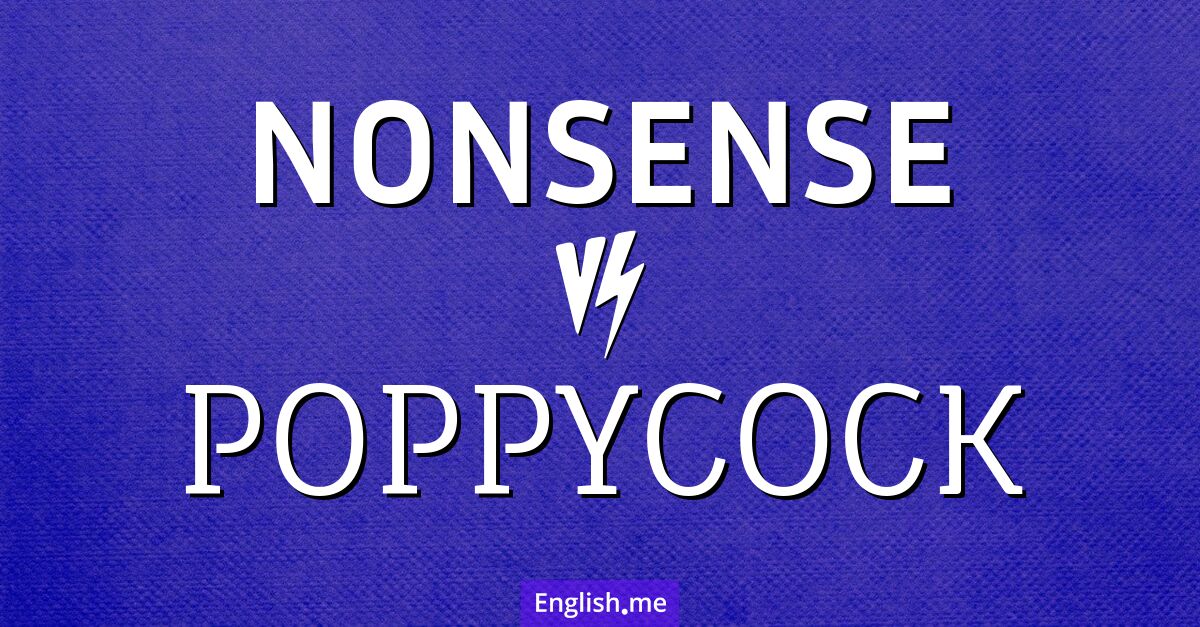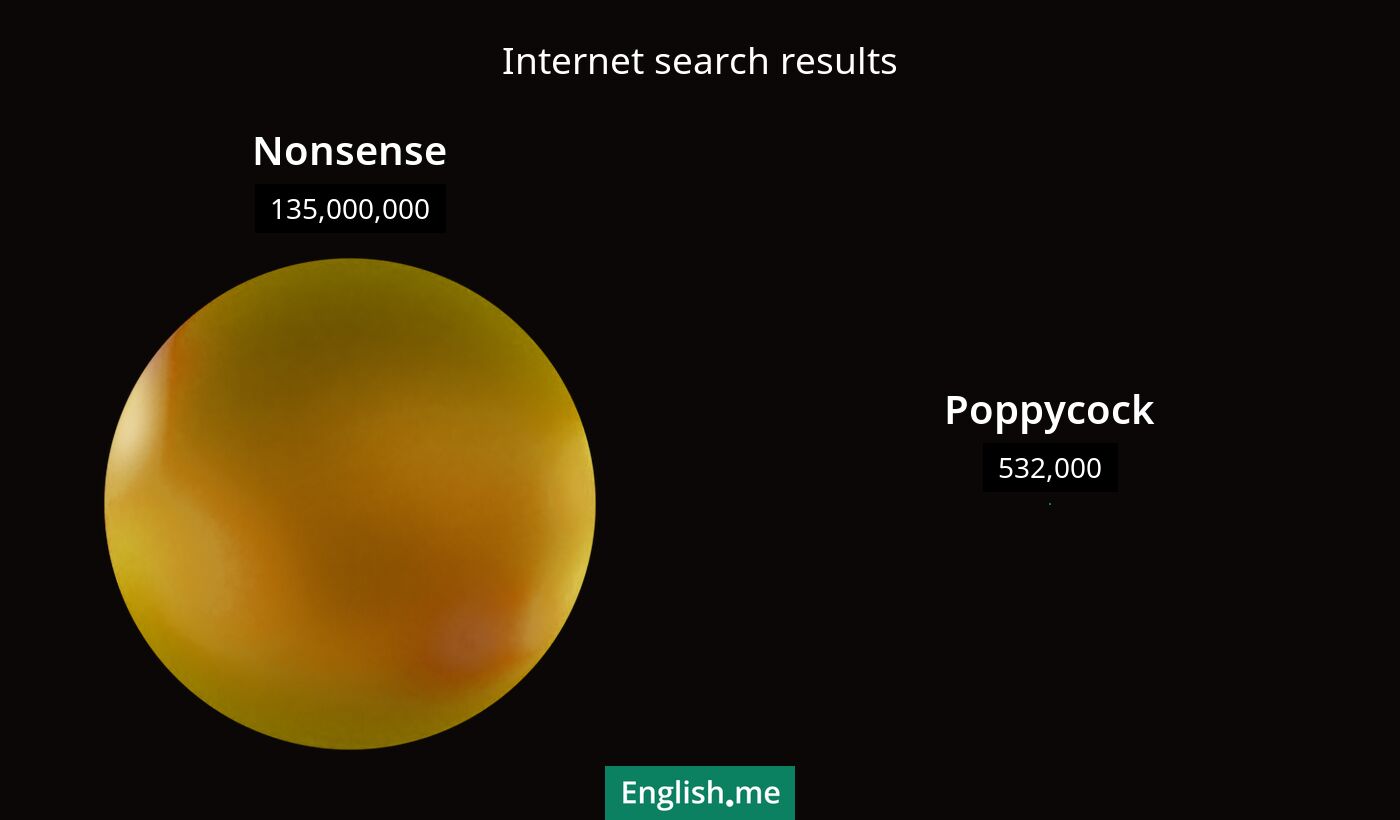Trimming the blather: "nonsense" vs. "poppycock"
Reviewed and edited by  Anwar Kareem 20/11/2024, 11:05
Anwar Kareem 20/11/2024, 11:05
English.me team member

 What is similar?
What is similar?
Both words refer to speech or writing that is foolish, absurd, or lacks sense.
 What is different?
What is different?
The word "nonsense" is more commonly used and can be applied broadly to anything that lacks meaning, while "poppycock" is more informal and often used to dismiss exaggerated or pretentious statements.
 Which one is more common?
Which one is more common?

 Examples of usage
Examples of usage
Nonsense- His explanation was pure nonsense and didn't help anyone understand the problem.
- She dismissed the rumors as complete nonsense.
- Don't believe a word he says; it's all poppycock!
- His theory sounded like poppycock to the experienced scientists.

 English
English español
español française
française italiano
italiano deutsche
deutsche 日本語
日本語 polski
polski česky
česky svenska
svenska Türkçe
Türkçe Nederlands
Nederlands